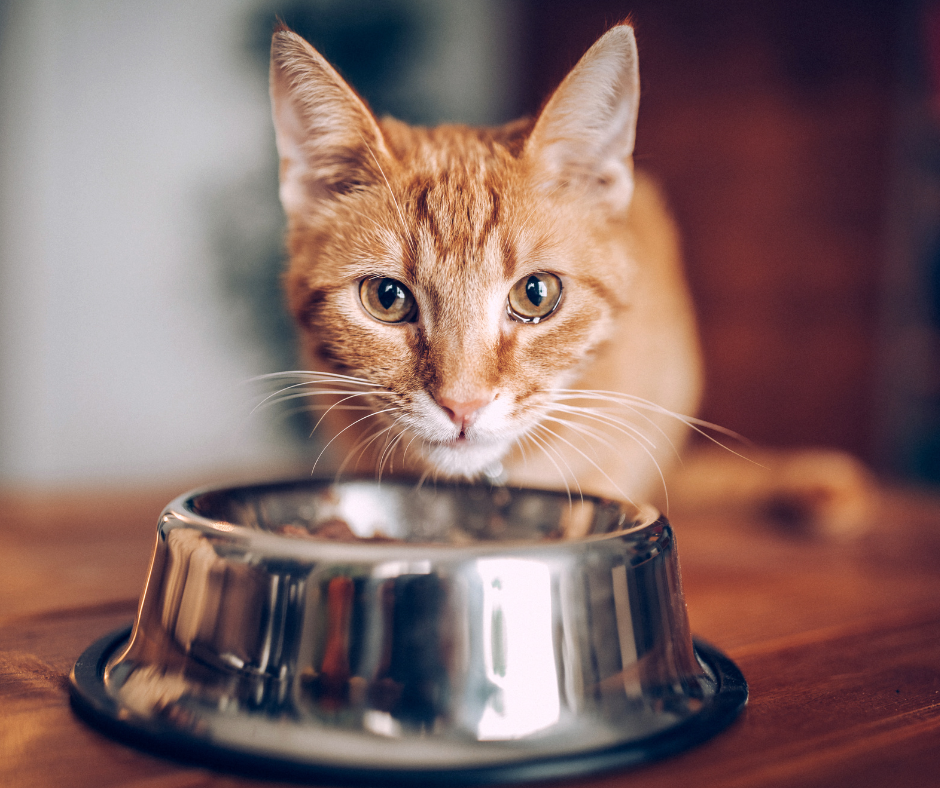Is Your Cat a Picky Eater, or Is It Something More?
Is your cat turning up their nose at their favorite food? Are mealtimes becoming a battle of wills? It could be no big deal…but how do you know for sure?
Many cat owners chalk this experience up to their feline friend simply being “picky.” While cats certainly have their preferences, a sudden or persistent change in eating habits can sometimes signal an underlying health issue.
At Oz Animal Hospital, we’re always glad to provide guidance on diet and at-home care. Read on to learn how you can tell the difference between a finicky feline and a potential problem.
“Just Picky” vs. Potential Problem: Knowing the Difference
It’s true: some cats are naturally more discerning eaters than others. They might have texture preferences or favor certain flavors. However, it’s crucial to distinguish between a cat with particular tastes and one whose appetite changes are a red flag.
When to be Concerned About Your Cat’s Eating Habits:
- Sudden Refusal to Eat: Especially if they previously had a good appetite.
- Eating Significantly Less: A noticeable decrease in food intake over several days.
- Weight Loss: Any unexplained weight loss is a concern.
- Lethargy or Weakness: If pickiness is accompanied by low energy.
- Vomiting or Diarrhea: Digestive upset along with appetite changes.
- Changes in Thirst or Urination: Could indicate systemic issues.
- Hiding or Withdrawal: Behavioral changes often accompany illness.
Underlying Medical Reasons: Why Your Cat Might Not Be Eating
Before labeling your cat as just “finicky,” it’s important to rule out medical causes. Several health issues can impact a cat’s appetite, and at Oz Animal Hospital, we have the diagnostic tools and expertise to investigate:
- Dental Disease: A Pain in the Mouth
Painful gums, loose teeth, or oral infections can make chewing uncomfortable or unbearable. Our comprehensive dentistry services, including cleanings and extractions, can address these issues.
- Gastrointestinal (GI) Upset:
Nausea, inflammatory bowel disease (IBD), parasites, or even something they ate that didn’t agree with them can cause a cat to refuse food. We offer diagnostic testing (like lab work and imaging) to pinpoint GI problems. Don’t forget parasite prevention!
- Pain from Other Conditions:
Arthritis, injuries, or other sources of pain can make a cat feel too unwell to eat. Our pain management protocols aim to keep your cat comfortable.
- Systemic Illnesses:
Conditions like kidney disease, thyroid disorders (common in older cats), or even cancer can significantly impact appetite. Our senior pet care focus and in-house diagnostics help us detect and manage these conditions.
- Stress and Anxiety:
Changes in the home environment, a new pet, or other stressors can cause a cat to go off their food. We can offer behavioral counseling and advice.
What You Can Try (Briefly) & When to Call Oz Animal Hospital
If your cat is otherwise bright and active but just a bit fussy:
- Try offering a different food flavor or texture.
- Gently warm canned food to enhance its aroma.
- Ensure a quiet, stress-free feeding environment.
If your cat refuses to eat for more than 24 hours, is showing any other signs of illness, or if you have any concerns, it’s crucial to schedule a veterinary appointment immediately. Delaying can allow underlying conditions to worsen, so take advantage of our SAME DAY APPOINTMENTS!
At Oz Animal Hospital, we’re dedicated to providing top-tier veterinary care that goes beyond traditional standards. Our team takes the time to understand your pet’s lifestyle, habits, and medical history to provide tailored recommendations for vaccines, preventative care, and treatment options. Choose Oz Animal Hospital for exceptional veterinary care that prioritizes your pet’s well-being and peace of mind! To schedule your appointment, contact us today.

